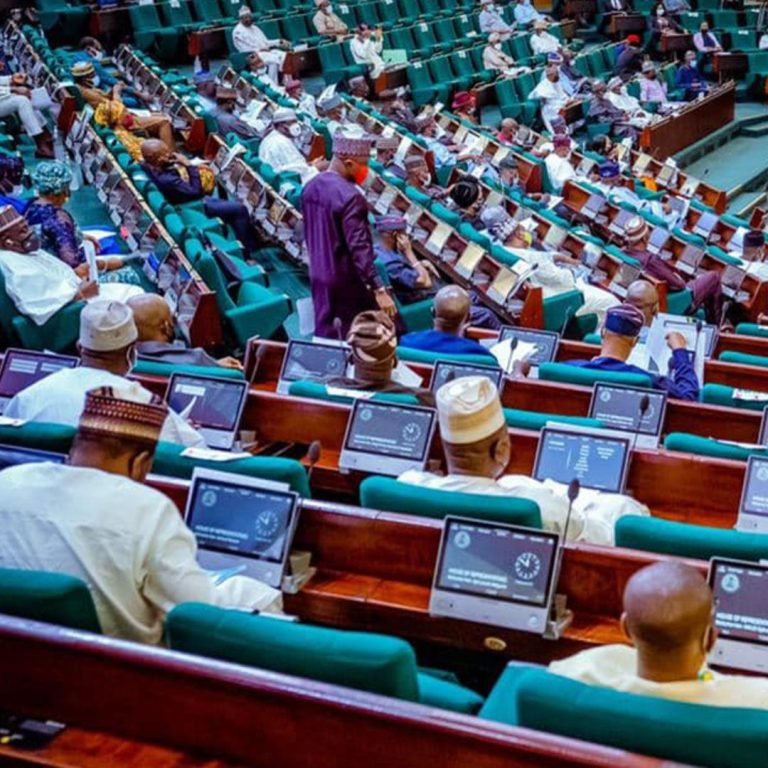If you’re chronically online, you most likely already know that the Economic and Financial Crimes Commission (EFCC) has just achieved its biggest asset seizure yet—a massive housing estate with over 753 duplexes on the outskirts of Abuja allegedly built with public funds.
For extra context, this isn’t one of those modest estates with a few okay-looking flats scattered here and there. This is a prime estate carefully built across 150,000 square meters of luxury.
For years, the luxurious buildings have left people in Abuja questioning who’s behind such a display of wealth. We’re still not sure what the answer to that question is because the EFCC is keeping that information to itself, revealing only that it belongs to a former high-ranking government official who allegedly funded this lifestyle with public money.
We won’t be talking about the government official everybody and their mom is pointing fingers at, but you can take at least 300 guesses in a country like Nigeria.
A property expert who spoke to the British Broadcasting Corporation (BBC) valued the estate at tens of millions of dollars which sounds about right for 750 luxury houses built with public funds. That left us with a very important question – what existing problems could the money spent on the seized 753 properties have been poured into solving?
Put an end to ASUU strikes
Academic strikes have become normalised in Nigeria and it’s majorly because the government just can’t seem to cough up enough money to pay lecturers’ salaries or fund universities.
In 2013, the Academic Staff Union of Universities (ASUU) demanded ₦1.3 trillion to fix everything that’s wrong with tertiary education in Nigeria, but the Goodluck Jonathan administration agreed to give the union ₦200 billion yearly because the country couldn’t afford to disburse ₦1.3 trillion at once. According to ASUU chairman, Professor Emmanuel Osodeke, that ₦200 billion was only paid once, and it’s been crickets since then.
The least amount of money the estate is estimated to be is $1 million, and that’s enough to stop the frequent ASUU strikes.
Better salaries for doctors in rural areas
The doctor-to-patient ratio in Nigeria is now 1000% below the World Health Organisation’s recommendation. This is mainly because doctors have been relocating to countries that offer better financial benefits to health workers. In Kano, Nigeria’s most populous state, 1,300 doctors are responsible for the healthcare of 15 million people. Meanwhile, in Adamawa, a single doctor treats 13,000 people. The effect of this japa wave is even worse in rural areas.
In October 2024, doctors (especially those in rural areas) asked the federal government to review their salaries. Before that, the last time that demand reached FG’s ears was in 2013 when it approved a salary review for medical practitioners under the Harmonised/Consolidated Health and Medical Salary Structures but local reports confirm that it never took effect because Nigeria is allegedly broke.
The seized estate, worth millions of dollars, could have been used to improve the salaries of Nigerian doctors working in rural areas.
Job creation for young Nigerians
70% of Nigeria’s total population is made up of young people. But about 53% of those young people (about 80 million youths) are unemployed.
The private sector has been one of the biggest employers of youths for years. But even that sector is starting to suffer from the economic mess Nigeria has drowned deeper into in 2024. A recent report by Stanbic IBTC Bank Purchasing Managers’ Index (PMI®) shows that the employment rate in Nigeria’s private sector has declined for the first time in seven months. For context, this sector has consistently created jobs for the last six months, but it can’t afford to do that anymore because the economy is getting worse, along with the purchasing power of Nigerians.
With the minimum wage being ₦70,000, even $1 million is enough to pay the salaries of about 1,900 youths for at least one year. I’m not saying the total value of the seized estate will be enough to solve Nigeria’s unemployment problem, but it can go a long way in reducing the unemployment rate significantly.
Fix UNILAG’s accommodation issue
In an ideal world, students shouldn’t have to hustle for hostel spaces, but that’s the reality of many students at the University of Lagos. Despite having about 40,000 students, the university only has 8,000 accommodation spaces due to the growing population and limited infrastructure. Off-campus housing options range between ₦250,000 to ₦800,000 in extreme cases. You can do the math, but the value of the seized estate is enough to fix UNILAG’s accommodation issue.
Reduce the number of out-of-school kids
10.5 million children in Nigeria barely even recognise what the four walls of a classroom look like. In Borno, Adamawa, and Yobe states alone, two million children have no access to education, and less than 30% of schools are able to meet basic teacher qualification standards, making the kids from these states automatically disadvantaged in life. The Nigerian government currently spends only 6.39% of the 2024 budget on education (because Nigeria is allegedly broke).
We can go on and on about the other problems the Nigerian government has consistently put on the back burner with their usual “there’s no money” excuse, but that would be stating the obvious.
This estate seizure is just another reminder of how much public money has gone into the pockets of a few government officials while the masses suffer.




